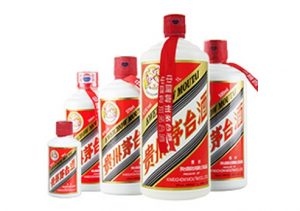S. Korea’s Nano Brick to ship its M-Tag to China in war against fake booze
Released Date: March 29, 2016

Nano Brick Co., South Korean anti-counterfeit solution provider, said Monday it won an order to supply its M-Tags to a Chinese liquor producer of Maotai, one of the best known brands of Chinese distilled liquor baijiu that has waged war against producers of fake Maotai.
Under the deal, the Korean company will ship the first batch of its shipment worth 470,000 yuan ($72,000) per year to Heijinzao, one of Maotai producers, and expand the order later. It is the second M-Tag order for Nano Brick after a contract it signed with Shandong Jingzhi Liquor Co., the producer of China’s well-known Jing Yang Chun liquor last month, to provide its solution.
An ultra-thin sticker called M-Tag is the world’s first anti-counterfeiting technology that distinguishes imitations from authentic goods by changing colors and patterns through a magnetic field – the application of nanoparticle production technology, according to the company. A user can simply place a rubber magnet commonly used in everyday life onto the M-Tag to see if spread nanoparticles line up like a brick, to tell whether a product is a knockoff or authentic.
An official at Nano Brick said the M-Tag has drawn great attention at a liquor and food exhibition held in Chengdu, southwest of China last week as many Chinese liquor makers have been battling against prevailing fake booze. Chinese liquor makers have used holograms, fluorescent ink, quick response (QR) code and radio frequency identification (RFID) to screen and seize counterfeit alcohol, but have failed to root it out in the market. He anticipated that M-Tag will be not an option, but a must to combat fake liquor distribution, leading to more shipments to China.

